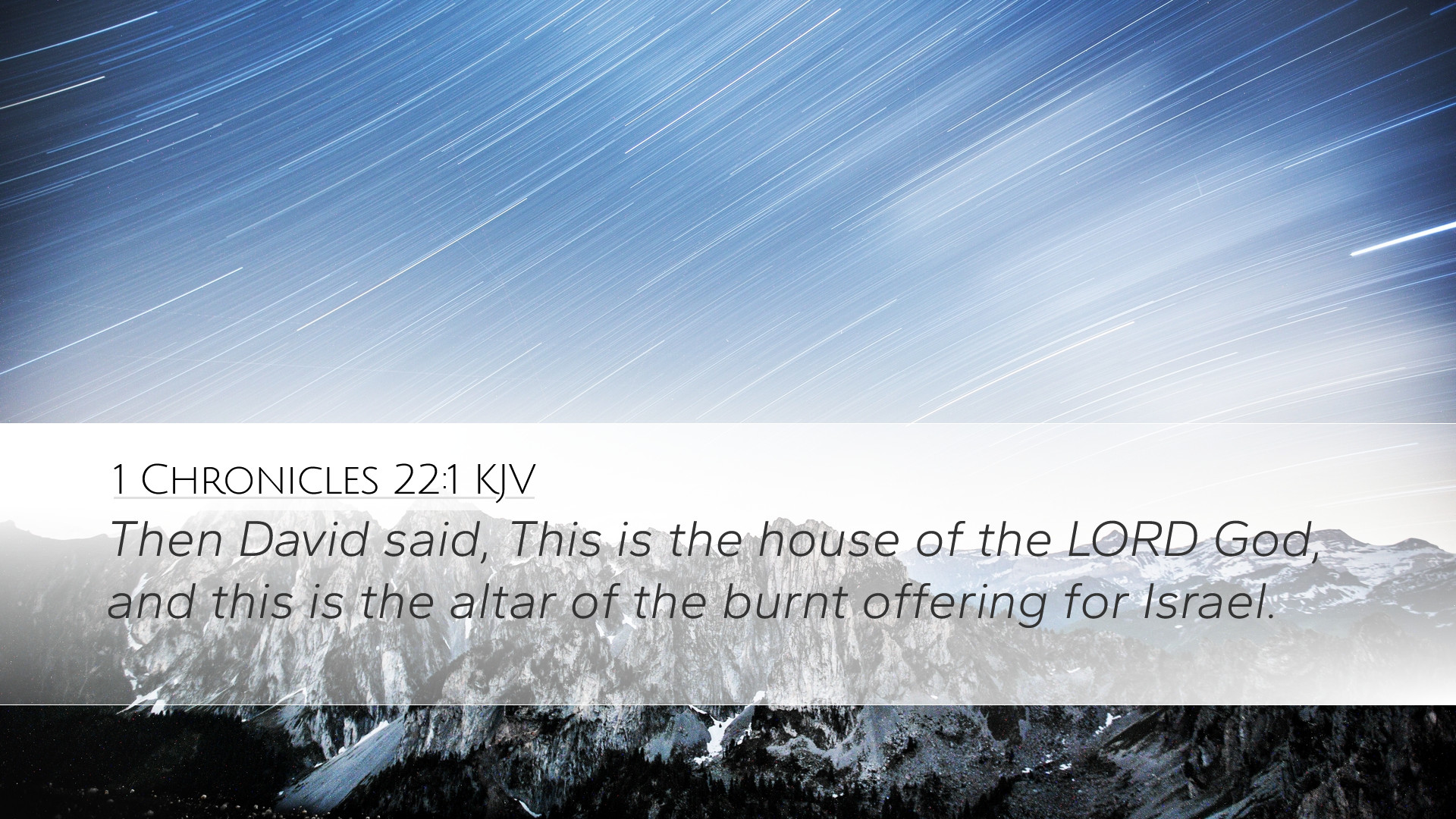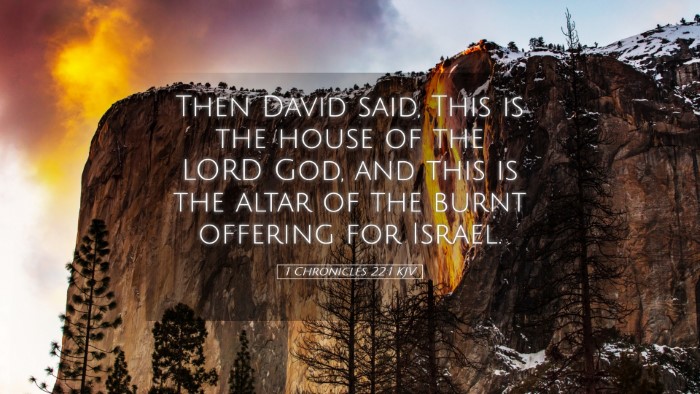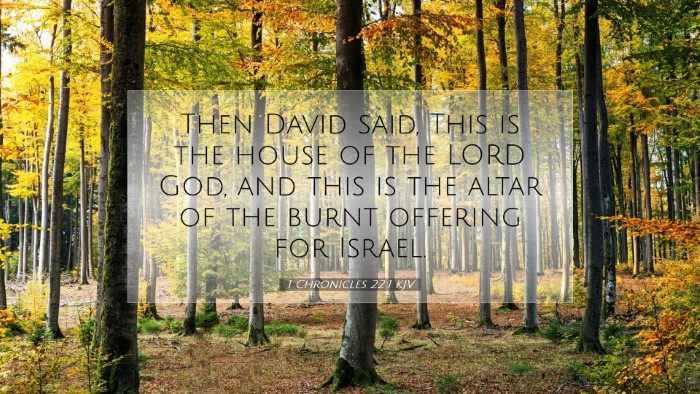Commentary on 1 Chronicles 22:1
Verse Insight: “Then David said, This is the house of the Lord God, and this is the altar of the burnt offering for Israel.”
Contextual Background
1 Chronicles 22:1 finds its place during a significant and transitional period in Israel's history, as David prepares for the construction of the Temple. This moment is crucial, reflecting not only David's lifelong ambition to build a dwelling place for the Lord but also the impending transfer of leadership to Solomon, his son. The verse explicitly emphasizes the intent and acknowledgment of the location chosen for divine worship and the associated sacrifices.
Matthew Henry's Commentary
Matthew Henry elaborates on the significance of the building project initiated by David. He notes that this location symbolizes the divine presence among the people of Israel. David identifies this place as the house of the Lord, indicating his desire to provide a permanent sanctuary as opposed to the tent structure that housed the Ark of the Covenant.
- Recognition of Divine Authority: Henry emphasizes that David's statement conveys a recognition of God's sovereignty and holiness. This realization is pivotal in understanding the nature of worship, which is to be conducted in a space consecrated for that purpose.
- The Centrality of Worship: The mention of the altar indicates the importance of sacrifices and offerings as acts of devotion to God. Henry points out that without such a physical and dedicated space, the nation's worship could suffer from a lack of focus and reverence.
Albert Barnes' Commentary
Albert Barnes takes a practical approach in his commentary, focusing on the implications of this declaration for the Israelites. He argues that David’s identification of the site as both a house and an altar serves to unify the community under a singular purpose of worship.
- Community Worship: Barnes highlights that this centralization of worship reflects God's desire for unity among His people. The Temple is a place that would draw the nation together, providing a common ground for all Israelites to offer their sacrifices and attend festivals.
- Preparation for Solomon: Furthermore, Barnes mentions the preparatory role of David in establishing Solomon's reign. David’s plans not only fulfill his own aspirations but also equip Solomon with the resources and the divine mandate necessary for the successful construction of the Temple.
Adam Clarke's Commentary
Adam Clarke provides a thorough analysis of the text, highlighting the emotional and spiritual weight that this moment holds for David. Clarke suggests that the verse encapsulates both the culmination of David's aspirations and the sense of responsibility that comes with such a monumental task.
- Emotional Weight: Clarke notes that David's heartfelt dedication to God shines through in his declaration. This moment is marked by both joy and solemnity, as David recognizes the sacred nature of the work that lies ahead.
- Legacy of Worship: Additionally, he posits that this proclamation serves to establish a lasting legacy of worship within Israel, which would carry through generations. The future Temple would not only be a physical structure but also a symbol of God’s enduring presence among His people.
Theological Significance
The declaration made in 1 Chronicles 22:1 is rich with theological implications. It illustrates the critical relationship between sacred space, divine worship, and community identity. The establishment of the Temple as a site for worship symbolizes God’s commitment to His people and His desire to dwell in their midst.
- God’s Desire for Relationship: God’s presence among His people through the Temple emphasizes His relational nature. This verse not only prepares the way for Solomon's Temple but also sets a precedent for understanding worship as an engagement with the Sacred within a defined space.
- Covenantal Identity: The act of building and dedicating this Temple is also an affirmation of Israel’s covenantal identity. It signifies that Israel is set apart to worship the one true God, who desires a specific venue for receiving their worship and sacrifices.
Conclusion
In summary, 1 Chronicles 22:1 is more than a mere historical account; it is a pivotal declaration that lays the foundation for worship in ancient Israel. The combined insights from public domain commentaries reveal the multifaceted implications of this verse for understanding the nature of worship, community, and God’s presence. For pastors, students, theologians, and Bible scholars, this text serves as a powerful reminder of the sacredness of space dedicated to God and the importance of intentional worship within the communal life of believers.


